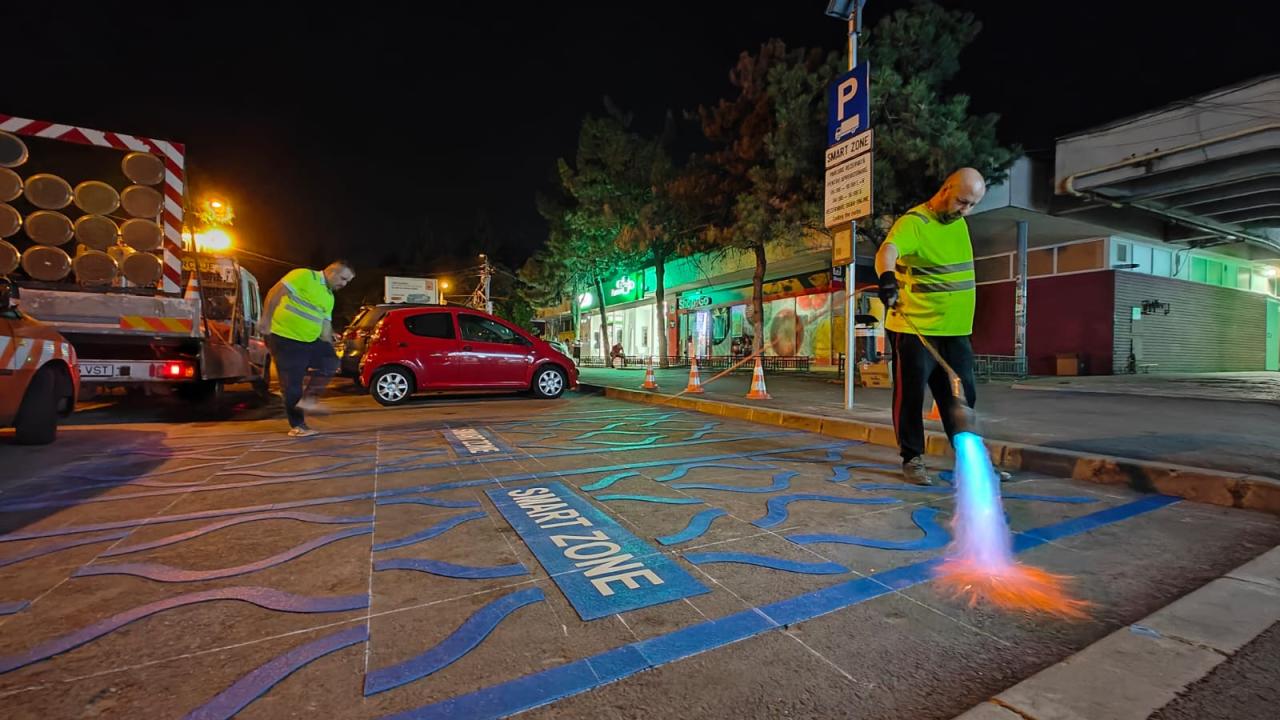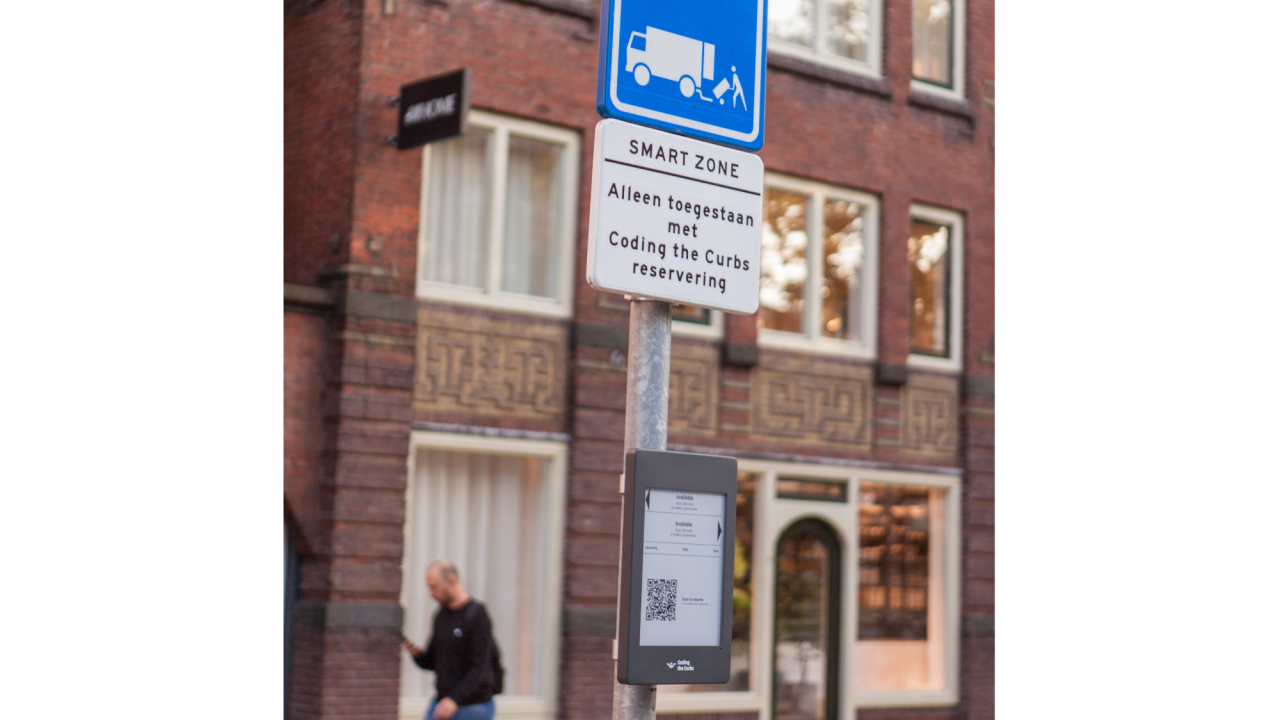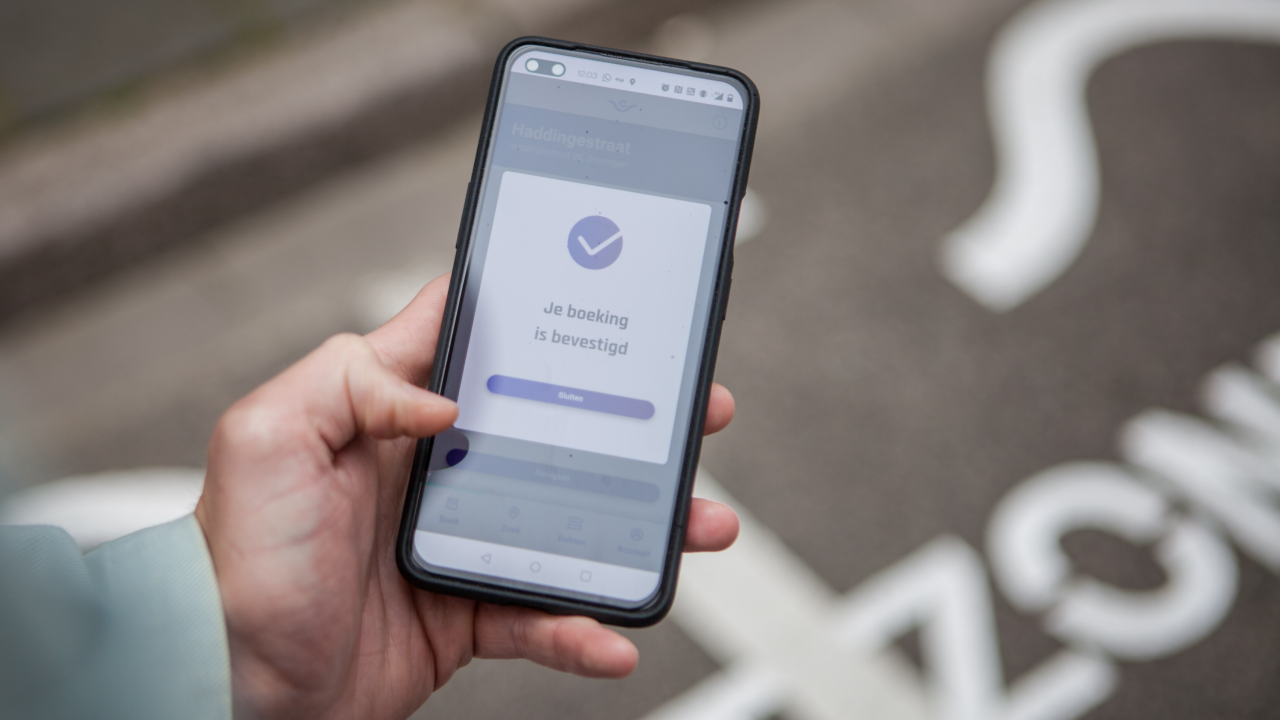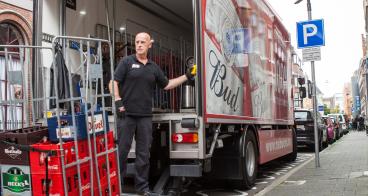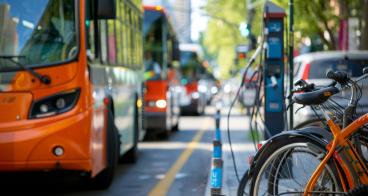Creating space in Bucharest, Groningen and Riga through Smart Zones
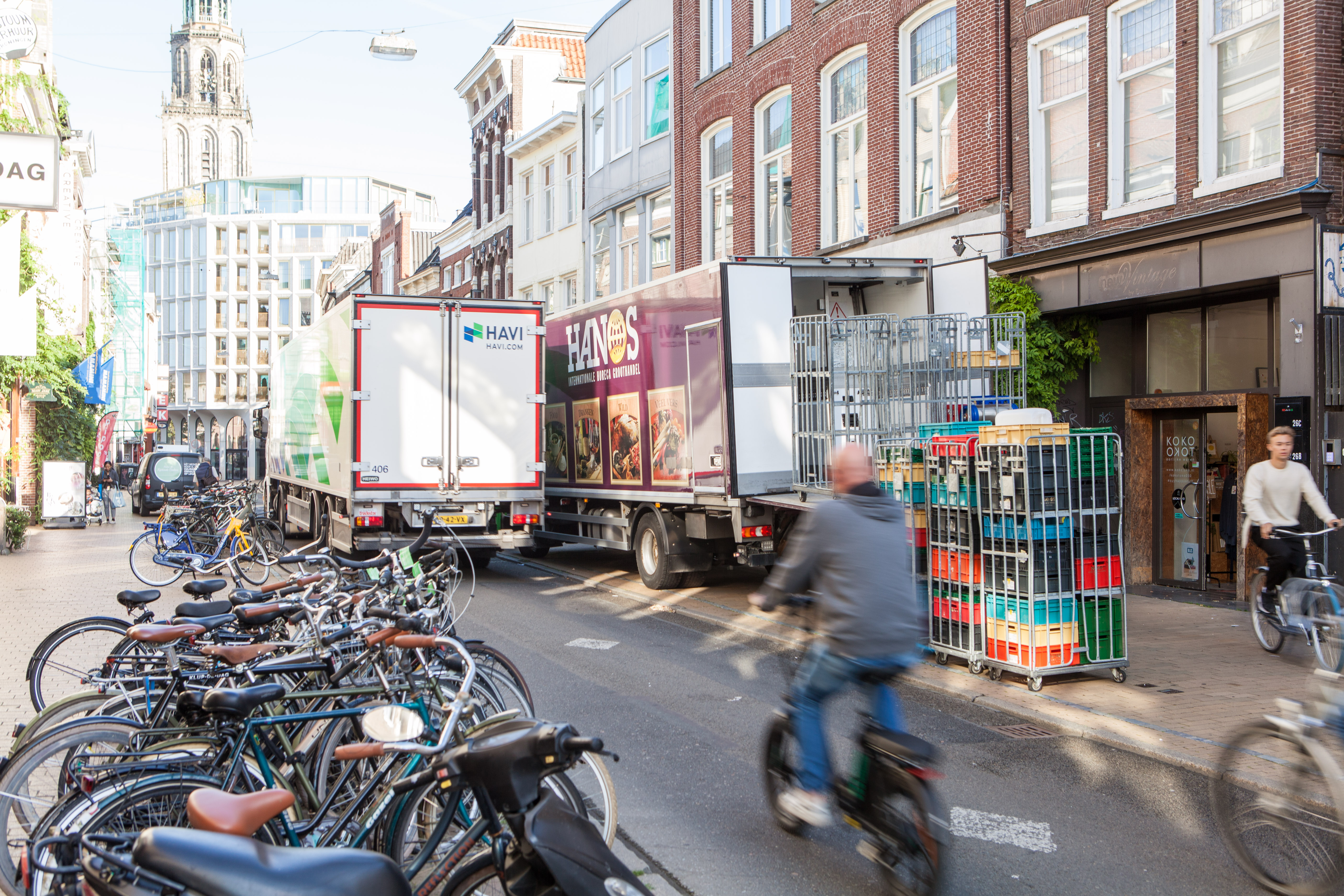
Curbside unloading causing chaotic traffic situations
The Challenge
Urban logistics management urgently needs to evolve as congestion, pollution, and increasing pressure on inner-city spaces reach critical levels. While logistics are vital to a flourishing city economy, the space required for loading and unloading at the curbside often comes at the expense of movement, social interaction, and recreation.
The curbside is inherently a flexible space where movement and stillness intersect, but it increasingly leads to chaotic and unsafe situations. Cities must therefore manage scarce public space in a sustainable and efficient manner. For logistics, this requires a shift from the 'first come, first served' approach and chaotic environments to a system of booked, guaranteed spaces and 'pay-per-use' models.
This project addresses the challenge: can digitising the curbside make logistics loading and unloading more efficient, thereby allowing the curbside's flexible nature to function in a more controlled and orderly manner?
The Solution
In a pioneering move, Smart Zones have been introduced in three partner cities, marking the arrival of Europe’s first-ever bookable and multifunctional loading and unloading bays. Through a custom-built booking application, logistics companies can now reserve curbside space in advance. This system ensures that goods are loaded and unloaded safely, without delays or unnecessary driving, reducing the risks posed by illegal parking and enhancing the sustainability of the logistics chain. With seamless integration into enforcement systems, these Smart Zones are actively monitored to ensure compliance, preventing long-term parking in loading bays and other improper uses of public space.
Each Smart Zone is equipped with sensors that detect the presence of vehicles, and when combined with booking data, they offer cities valuable insights into the usage of these critical areas. This data encompasses the type and number of users, the number of bookings, occupancy rates, usage duration, traffic patterns, and violations. These insights contribute to the creation of a detailed digital twin of the logistics activities on each street, enabling cities to manage urban space more efficiently. During periods of low demand, these Smart Zones can be repurposed for other types of bookings, making the space truly multifunctional. For instance, during peak logistics hours in the morning, the Smart Zones function as loading and unloading bays, while in the evening, they are available for reservation.
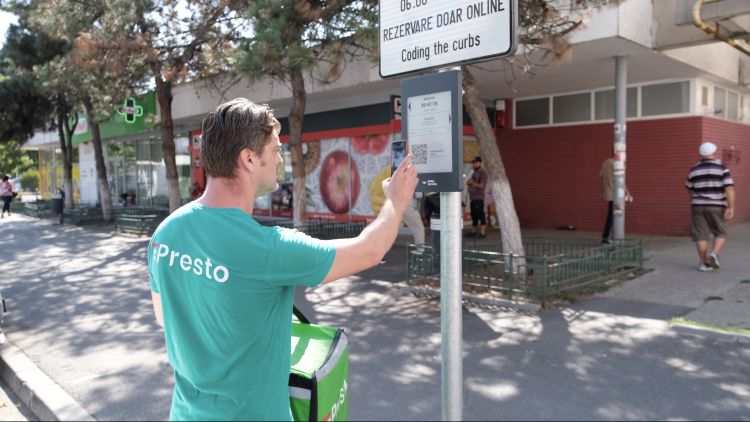
Driver making a Smart Zone booking
Making an impact
As of August 2024, one year after the introduction of the first Smart Zone, the system recorded over 1,800 bookings. Each of these bookings allowed a logistics vehicle to unload without blocking the street or creating unsafe traffic conditions. Additionally, logistics vehicles with a booking knew exactly when an unloading bay would be available, significantly reducing unnecessary kilometres driven in search of parking. This convenience of booking beforehand, has led to a substantial increase in the use of unloading bays. Where these bays were previously occupied around 20% of the time, Smart Zones have now achieved an occupancy rate of approximately 60%. This increase is partly due to our successful experiments with dual-use scenarios, such as temporary parking.
Throughout the entire pilot phase, no reports of users have been received being unable to access a Smart Zone due to improper occupation by another vehicle. This finding was further supported by local enforcement and police units, indicating a significant reduction in infractions at unloading bays. Moreover, by integrating multiple uses within the same space, the project effectively freed up valuable public space in crowded cities creating a more pleasant environment for pedestrians and cyclists. The reclaimed space can now be dedicated to activities that enhance the liveability and vibrancy of the streets.
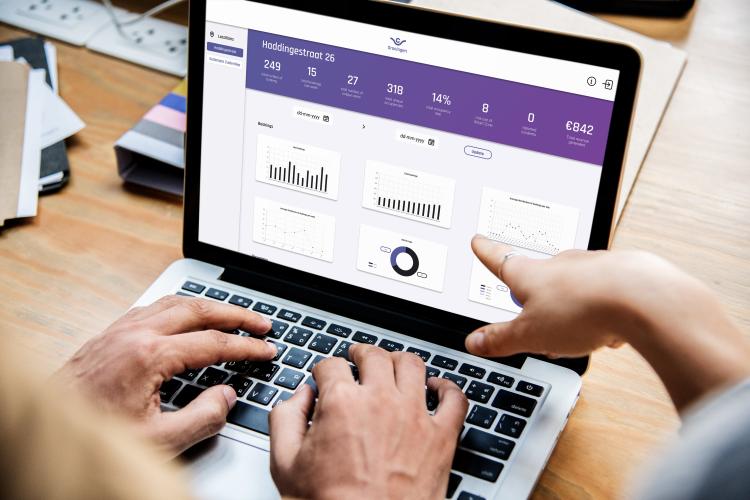
Data insights on the occupancy and bookings of the Smart Zones
Lessons learnt
Bookable (un)loading bays are the new way of working for logistics: In each city, a user-friendly system has been widely adopted. With Smart Zones, they are able to have guaranteed space for unloading.
Each Smart Zone location had a positive impact on street level: By dedicating dependable space for logistics, cities were able to reduce congestion, nuisance and emissions. On top of that, each Smart Zone demonstrated a significant increase in the occupancy. This has been achieved by the multifunctional character of Smart Zones.
The occupancy fluctuates weekly and is contingent on various factors: Information Provision; to what extent new users are informed and supported before and during the interaction with the system. Onboarding; as with any new-to-the-world innovation communication about the why, what, and how is crucial. Location; both the proximity of the Smart Zone to the final destination of delivery and the necessity felt for a space dedicated to (un)loading determine the acceptance. Enforcement; Preventing the misuse of the location and improper parking outside the designated area, thereby contributing to the system's functionality and usage
Cities exhibit a knowledge gap concerning insights into logistics flow and parking. There are no monitoring systems in place to gather data, and data sharing between municipalities and logistics players is non-existent.



